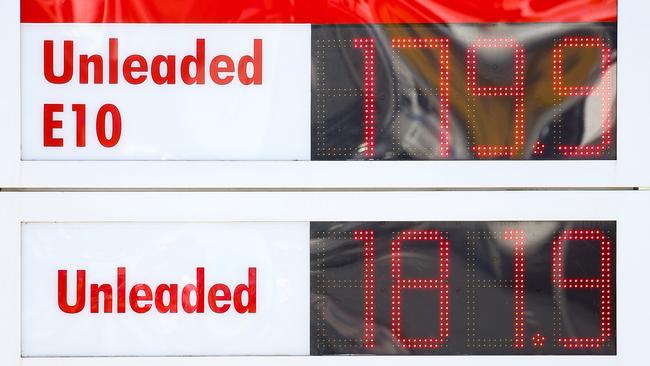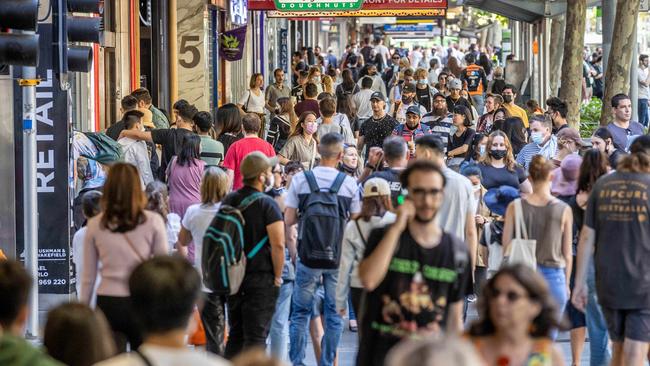Motorists face big slug at bowser
More pain ahead at the petrol pump: motorists will be paying on average 15c a litre more for petrol over the next six months.

Business
Don't miss out on the headlines from Business. Followed categories will be added to My News.
Motorists will be paying on average 15c a litre more for petrol over the next six months, according to CBA, as the intensifying Russia-Ukraine conflict drove global oil prices higher on Monday.
Despite the anticipated further pressure on household budgets, CBA head of Australian economics Gareth Aird said the overall impact of Russia’s invasion of Ukraine on Australia’s economy would be “minimal”.
Ahead of the Reserve Bank’s board meeting on Tuesday, economists said central banks would need to tread more carefully as they weighed the extra pressure on inflation from higher energy prices against nurturing financial markets through a difficult period.
Brent crude oil lifted by as much as $US7 a barrel during Asian trade on Monday to above $US105/bbl after the West announced it would kick some Russian banks off the SWIFT international payments network and Russian President Vladimir Putin ordered his country’s nuclear forces on “high alert”.
As Russians queued to withdraw cash, analysts warned of an impending collapse in the value of the rouble, which in offshore trading on Monday plunged by as much as 40 per cent against the US dollar. Russia’s central bank responded by hiking rates from 9.5 per cent to 20 per cent.
Global ratings agency Standard & Poor’s downgraded Russia’s credit rating to “junk”, implying a higher risk of default and precluding all but the most speculative of investors.
Petrol prices continued to hit highs, with the national average last week reaching 180c a litre, according to the Australian Institute of Petroleum. Mr Aird said fuel prices were set to average about $1.95 a litre in the coming six months based on an oil price forecast of $US110 over that period.

As households brace for higher interest costs as early as June, Mr Aird said he did not expect higher fuel costs would dent the consumption-led economic recovery, noting the 15 per cent surge in petrol prices over the past six months had not held back spending.
Indeed, retail spending lifted strongly in January, defying the Omicron “shadow lockdown”, as Australians hit the shops despite a spike in Covid-19 cases during the month. Retail trade bounced by 1.8 per cent, according to the Australian Bureau of Statistics, driving turnover in January to $32.5bn on a seasonally adjusted basis – 6.1 per cent more than a year earlier and the second-highest monthly figure after November’s $33.3bn.
Retail trade dropped 4.4 per cent in December following blockbuster months in October and November. After Omicron cases surged at the start of the year, economists had expected a more moderate spending recovery of 0.3 per cent in January.
More up-to-date bank card transaction data suggests spending lifted further through the second half of January and into February, further evidence consumers will help drive the economy in the first months of 2022.
The economy may also have finished last year in better shape than expected, after ABS company profits data released on Monday showed a sharp 1.1 per cent lift in business inventories.
That was well ahead of forecasts, and suggested Wednesday’s national accounts could show GDP lifted by more than the anticipated 3 per cent during the three months to December, after Delta lockdowns in NSW, Victoria and the ACT drove an economic contraction of 1.9 per cent in the September quarter.
ANZ chief economist Richard Yetsenga said the direct economic impact of the Ukraine conflict on the world economy was “probably pretty modest … Obviously there’s a horrible human cost, but these are not economies at the epicentre of the world’s trading system.”
Mr Yetsenga said fresh financial market volatility and the uncertainty associated with the war could slow the pace of monetary policy normalisation in advanced countries “I think it adds to the RBA’s caution,” he said
Originally published as Motorists face big slug at bowser





